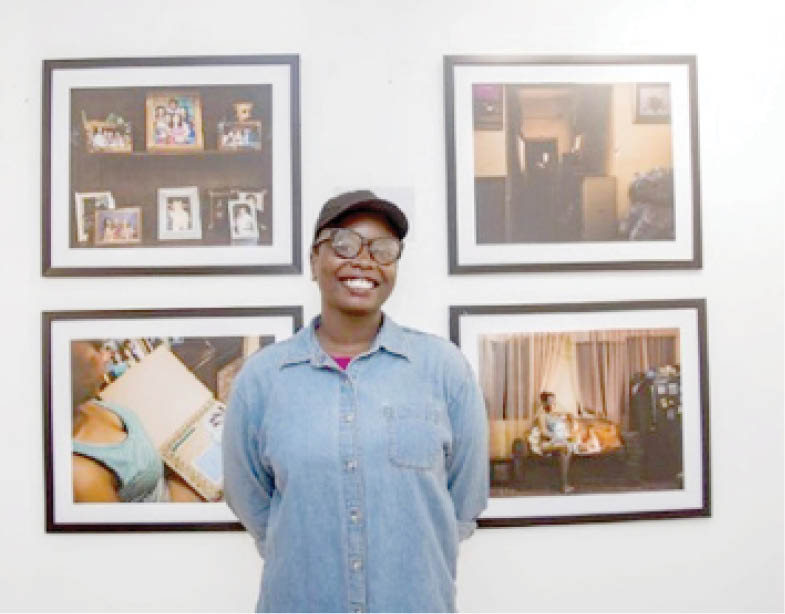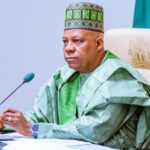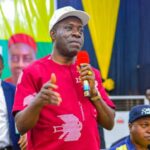Aderonke Alade is a graduate of Computer Science from the Afe Babalola University, Ado-Ekiti, and has been rising as a documentary photographer in Nigeria. Her skills have opened several doors for her within and outside the country. She was one of the exhibitionists at the Migration Project implemented by Art for Humanity and was supported by the United Nations Educational, Scientific and Cultural Organisation (UNESCO), Italian Agency for Development Cooperation, as well as the Italian Ministry of Foreign Affairs and International Cooperation, where her ongoing project: “Settler, Filipino Community” received accolades. She shares her plans in this interview.
How did you choose photography?
A six-hour journey connected me to the university I attended. Travelling through many states within the country to get to school; I got to witness more of the underlining truth of the underdevelopment within our borders. I got to see more of what I had been sheltered from; poverty and a real struggle, and for many a norm. I had, like a lot of people in Nigeria, depended on external media to learn about Nigeria, especially our history, and the story I had been told was one of an underdeveloped, poverty-stricken country. True, the standard of living is largely low. We do have to fight diseases and economic challenges amid others, but I was discovering that despite all these, the majority of us remain fierce and hopeful. Despite being divided by ethnicity, religion and culture, we remain connected in our strength and drive. I found that the struggle for survival might have led a few of us down confusing paths, and inadequate systems were more often still the reality, yet we as a people have learnt to thrive, shine, endure and grow; sometimes despite dissenting and outright unfavourable conditions.
This is what I have found and I am learning and is the story I want to share through the lens of my camera.
As a documentary photographer, what do you hope to achieve?
Documentary photography gives me joy and fulfilment. A fulfilment that comes from telling stories, that inspires change and impact. A story that gives me hope and strength to keep fighting for the things I believe in. I want to tell stories of the people around me from a place of courage, hope, strength and resilience.

Most Nigerians are used to portrait photographers, what makes documentary photography unique?
Like every other art piece, documentary photography is a canvass on which history is recorded daily by the artist manoeuvring his or her equipment. As a documentary photographer that is for those who stick to creating and not manipulating the history being recorded, one becomes an everyday-people historian. One gets to be a record in time that can be visited by the people who are yet to come.
How would you describe the perception of Nigerians to documentary photography?
I believe it’s the same for every aspect of photography; be it portrait or wedding. The masses and some photographers are yet to discover the art within still images. Photographers are not only creative, but are artists.
How have you evolved as a documentary photographer?
Evolution is consistent, I have grown, but I haven’t even scratched the surface of photography. I am still a student waiting for her teacher. I am yet to have my thirst quenched. Even though the digital age has made it easy for everyone to create content in this regard; yet I still thirst.
Tell us about the most challenging project you have done?
Every project is always as challenging as the previous one. When they come or when I want to create, I go through the same cycle first. The cycle of anxiety, in-depth research, shooting, editing and repetition till a finished work is collated.
How do you ensure you bring the best out of your work?
I do not look to creating a wow factor in any of my images. I look to connecting with an audience the piece of work was created for. In this noisy world, I want my work to heal people, I want it to witness in the heart of people that they are not alone. We are all doing this thing called “world and society” together.

How have you used documentary photography to speak against social vices or address societal challenges?
I do not use my work to speak; I let them tell the stories. After much research on the subject matter and in-depth conversation with the subjects, I do my best in capturing the essence behind the subject and a constant fight in whether or not I should add or subtract from the story. Most often than not, I tell the story just as it is.
Documentary photography is quite capital-intensive, how would you advise people that desire to join you in the profession?
For anyone starting out as a photographer in different areas, life is simple so don’t complicate things. If you do not have wealthy parents, and I mean wealthy parents, or people who would support you financially, find a way to earn a living; be it a nine-to-five as long as you get a steady income. This is until your photography can afford the life you have always dreamed off. Learn to balance your passion with the realities of the society we live in.
How would you describe the future of documentary photography in Nigeria?
You can never say. Time will tell. Only those who really have the passion for the job will stick to it in the end. Basically, the future is what these passionate artists determine it to be.
You are faced with several challenges, what should be done to tackle these challenges?
Insecurity poses a threat to everyone travelling in this age. Most organizations are very aware of that and take preventive measures like assessing the security threat in this region, depending on the level, a security personnel is hired. In the case of personal projects, it poses a great challenge. One of the ways to approach it is by searching for a local guide that knows the in and out of the community. Someone who can also serve as your eyes and ears, but that still doesn’t get rid of threats.

 Join Daily Trust WhatsApp Community For Quick Access To News and Happenings Around You.
Join Daily Trust WhatsApp Community For Quick Access To News and Happenings Around You.


